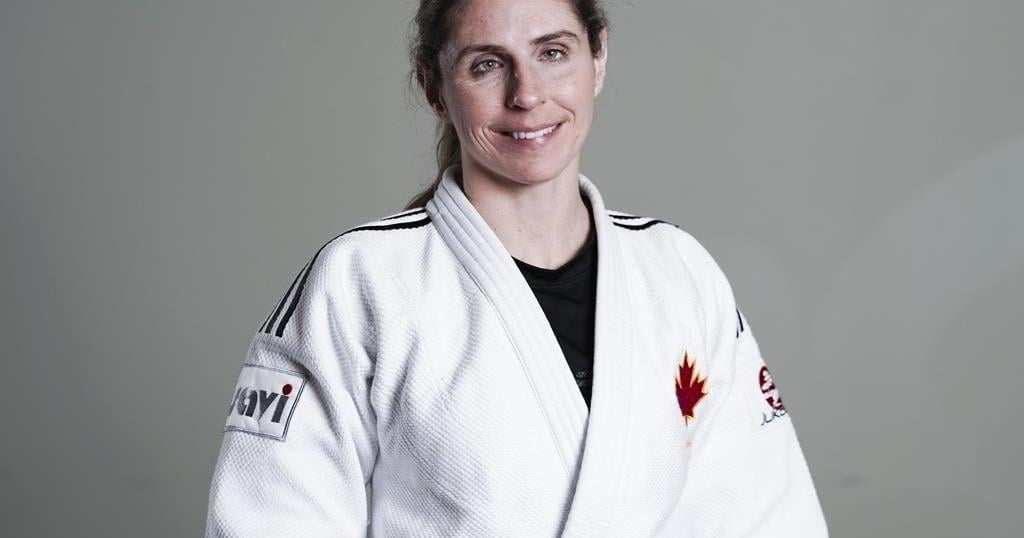Canadian judoka Priscilla Gagne isn’t enjoying the easy ride she once expected at the Paris Paralympics.
But as the three-time Paralympian enters her final Games, she welcomes the competition — because new rules mean more blind athletes are getting a chance on the mat.
Born with the genetic eye disorder retinitis pigmentosa, Gagne is categorically blind and will compete in the women’s J1 57-kilogram event Thursday at Champ de Mars Arena.
The 38-year-old from Sarnia, Ont., was Canada’s opening ceremonies flag-bearer at the Tokyo Games in 2021, where she won silver in the 52-kg weight class despite sparring against judokas with better vision.
In previous Paralympics, judokas with varying degrees of impaired vision were lumped together. The Paris Games will have two distinct categories to help level the playing field: J1 for fully blind athletes and J2 for those with partial vision.
“I decided to continue to Paris because of the vision classification changes, anticipating it would be a walk-through,” Gagne said. “And it’s not a cakewalk, because of all these amazing athletes coming out.”
Canadian coach Andrzej Sadej, a key figure in the development of high-level judo in the country, said Gagne was the only fully blind athlete competing for gold in Tokyo.
When the new classification was implemented after the Tokyo Games, Sadej said the Canadian Paralympic Committee and Own The Podium were keen to invest in Gagne’s training.
“They said, ‘Well she is a walking gold medal in Paris with a new classification,’” Sadej said. “Because she was by far the best blind athlete out of all of the male and female divisions in Tokyo.”
Instead of dominating the field, Gagne enters the Paris Games ranked fourth. She said the door has opened to a whole new class of talented blind judokas from countries around the world — athletes who didn’t get the opportunity to compete under the previous classification.
“It’s not only good for (the blind athletes), it’s good for the entire population in their country, the disabled population in their country,” Gagne said. “To me, it’s a beautiful thing to see all these people coming out, even though they’re really hard and we didn’t expect it.”
Sadej, a former national team coach and executive at Judo Canada, has coached the Canadian Paralympic judo team for 10 years and served on the International Blind Sport Federation’s judo sport committee since 2015.
The former Polish judoka said before Tokyo only four per cent of para judo athletes would have qualified as completely blind, a number that has increased exponentially under new rules.
“Only three years later, more than half of the people who are classified right now are blind,” Sadej said. “And the numbers are similar, 600 (total athletes) before Tokyo, 600 now.
“It shows you that you had 200-plus athletes across the world who were blind and who are good judo players, who were not able to compete because they were replaced by people who are (less) visually impaired or not visually impaired.”
Some of those athletes, Gagne and Sadej alleged, included competitors with no significant vision impairment.
“Some of them even had driver’s licences and motorcycle licences,” Gagne said.
Sadej, who played an important role in the fight to implement new classifications as part of the sport commission, expressed concerns about ethical standards across countries, highlighting how the previous rules were “inadequate.”
“There were many athletes from different parts of the world who competed in able-body judo successfully, but not successfully enough to benefit financially from winning medals,” he said. “So if they had glasses on, they decided to switch to the Paralympic movement, and the classification methodology was so inadequate and was so corrupted that it was relatively easy to get to the classification.”
While he firmly believes athletes will continue to cheat, Sadej said judo’s new classifications will make it more difficult for athletes to be dishonest, particularly in blind judo.
Although the competition remains stiff, Gagne and Sadej are confident she can bring home gold.
“I expect great things, and wouldn’t be doing it if I didn’t,” Gagne said. “Aiming for the podium, the top of the podium and ready to lay it all out there for the last time.”
The sport is in a much better place than when she first took to a judo mat 15 years ago, but Gagne is “100 per cent” certain she’s ready to move on after Paris.
“I’m 38 years old, and my body is 38 years old, and this is my third cycle,” she said. “My dream was to go to one, and I got to go to three, and medal at potentially two, so that dream is accomplished, like, three times over.”
In her post-Paralympic career, Gagne plans to do more conferences about the inclusion of people with disabilities and continue to teach self-defence courses for vulnerable populations.
She also hopes to become a published author, with two children’s books already written and a personal memoir to come.
“I’m ready for that next chapter,” she said. “I’m ready to experience the things that I exchanged or laid down for a time in order to compete at such a high level. I’m ready to pick those things up and see where they’ll lead.
“I’m excited to have that spontaneity back, to be able to, you know, fly off the seat of my pants.”
This report by The Canadian Press was first published Sept. 4, 2024.

























